The figure, shows a metre bridge circuit, with and and the jockey J in the position of the balance. If R is now made , through what distance will J have to be moved to obtain balance ?
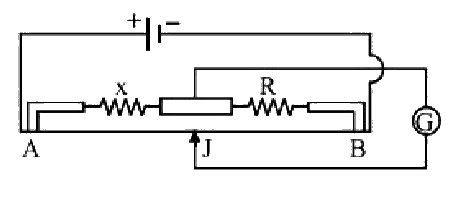
10 cm
20 cm
30 cm
40 cm
The correct Answer is:B
Topper's Solved these Questions
Similar Questions
The figure shows a metre-bridge circuit, with AB = 100 cm, x=24ΩandR=36Ω , and the jockey J in the position of balance
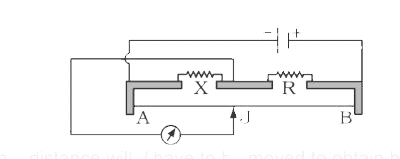
If R is now made 16Ω , through what distance will J have to be moved to obtain balance?
View SolutionIn the Wheatstone bridge network ABCD is balanced when P=500Ω,Q=250Ω and S=12Ω, what is the value of R ?
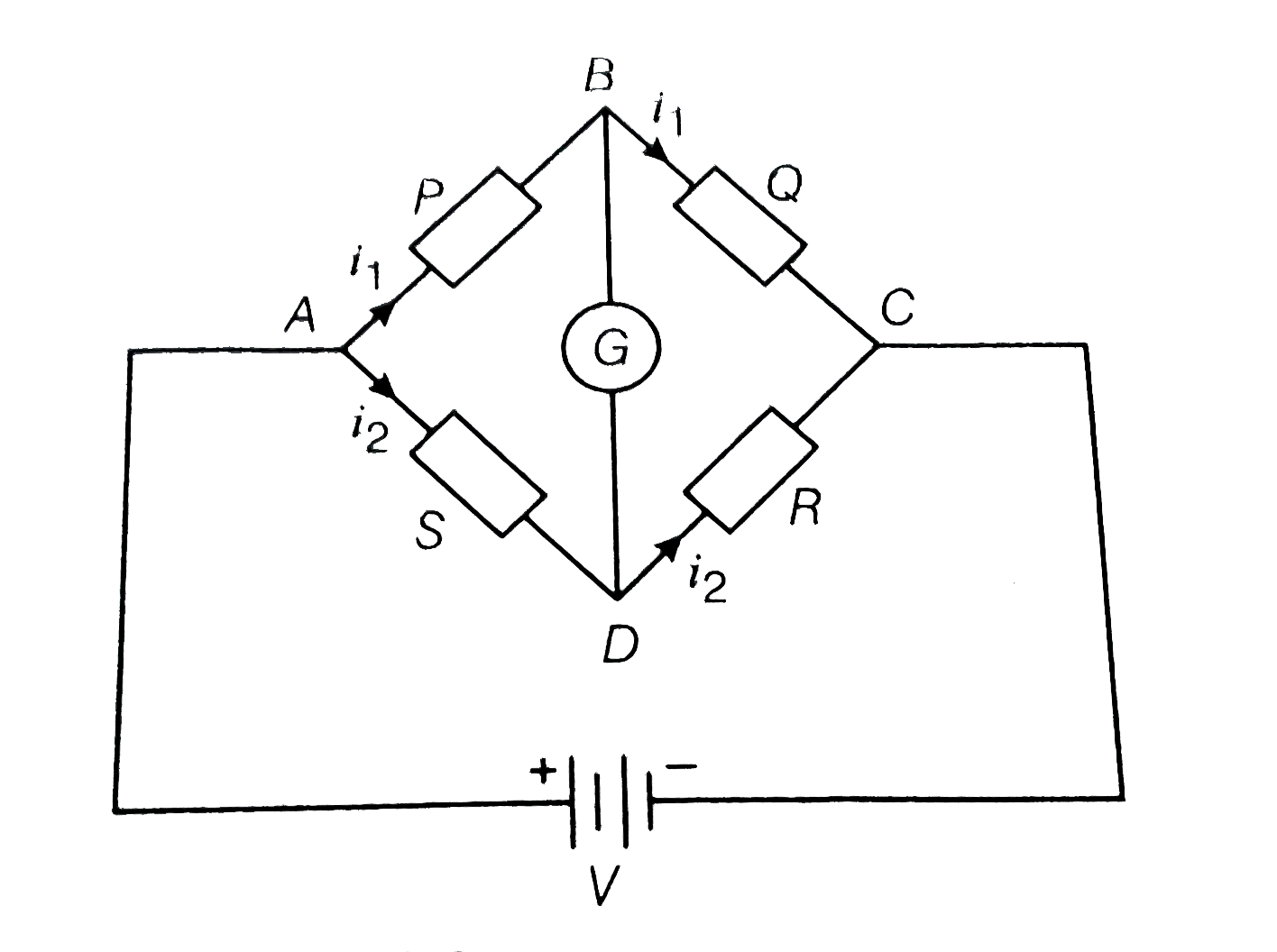
View Solution
Knowledge Check
The figure shows a meter-bridge circuit, X=12Ω and R=18Ω. The jockey J is at the null point. If R is made 8Ω through what distance will the the jockey J have to be moved to obtained null point again?
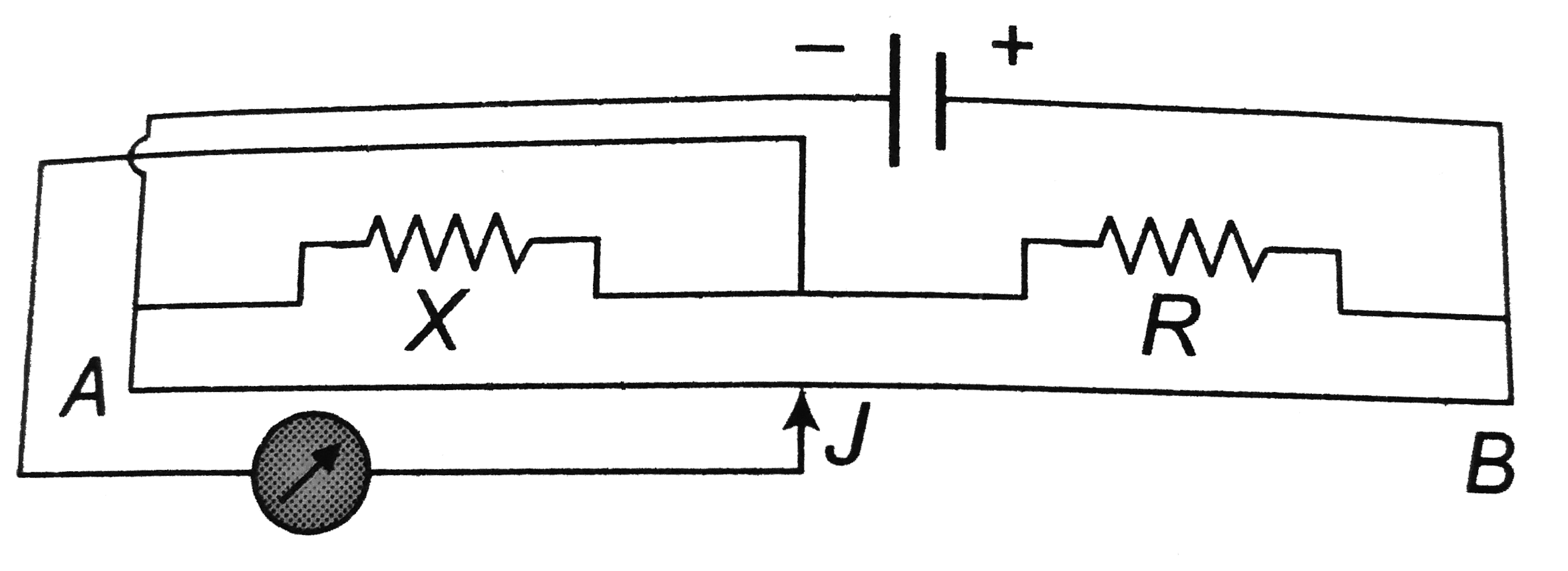 A10cmB20cmC30cmD40cm
A10cmB20cmC30cmD40cmIn the Wheatstone's bridge shown, P=2Ω,Q=3Ω,R=6Ω and S=8Ω. In order to obtain balance, shunt resistance across S must be
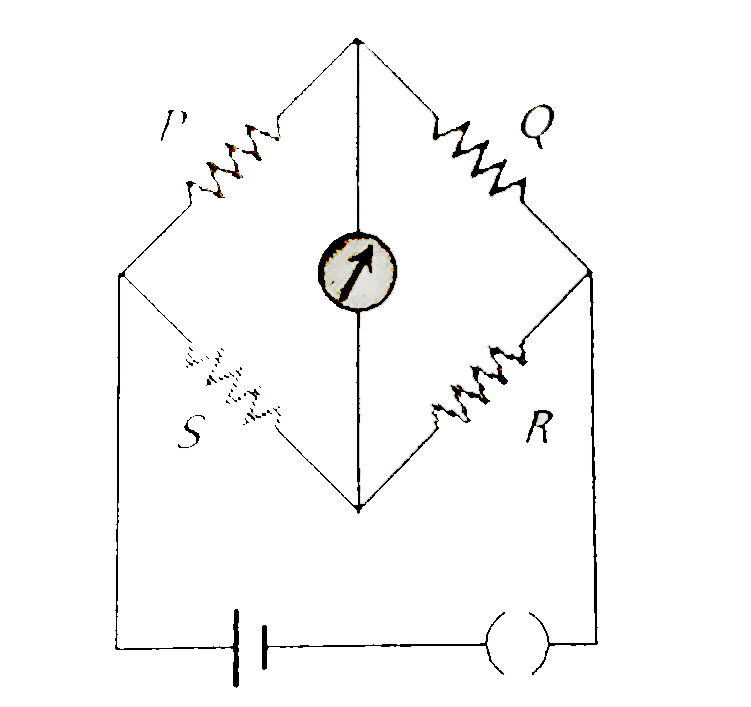 A2ΩB3ΩC6ΩD8Ω
A2ΩB3ΩC6ΩD8ΩFigure shows a battery with emf 15 V in a circuit with R1=30Ω,R2=10Ω,R3=20Ω and capacitance C=10μF. The switch S is initially in the open position and is then closed at time t= 0. What will be the fimal steady - state charge on capacitor?
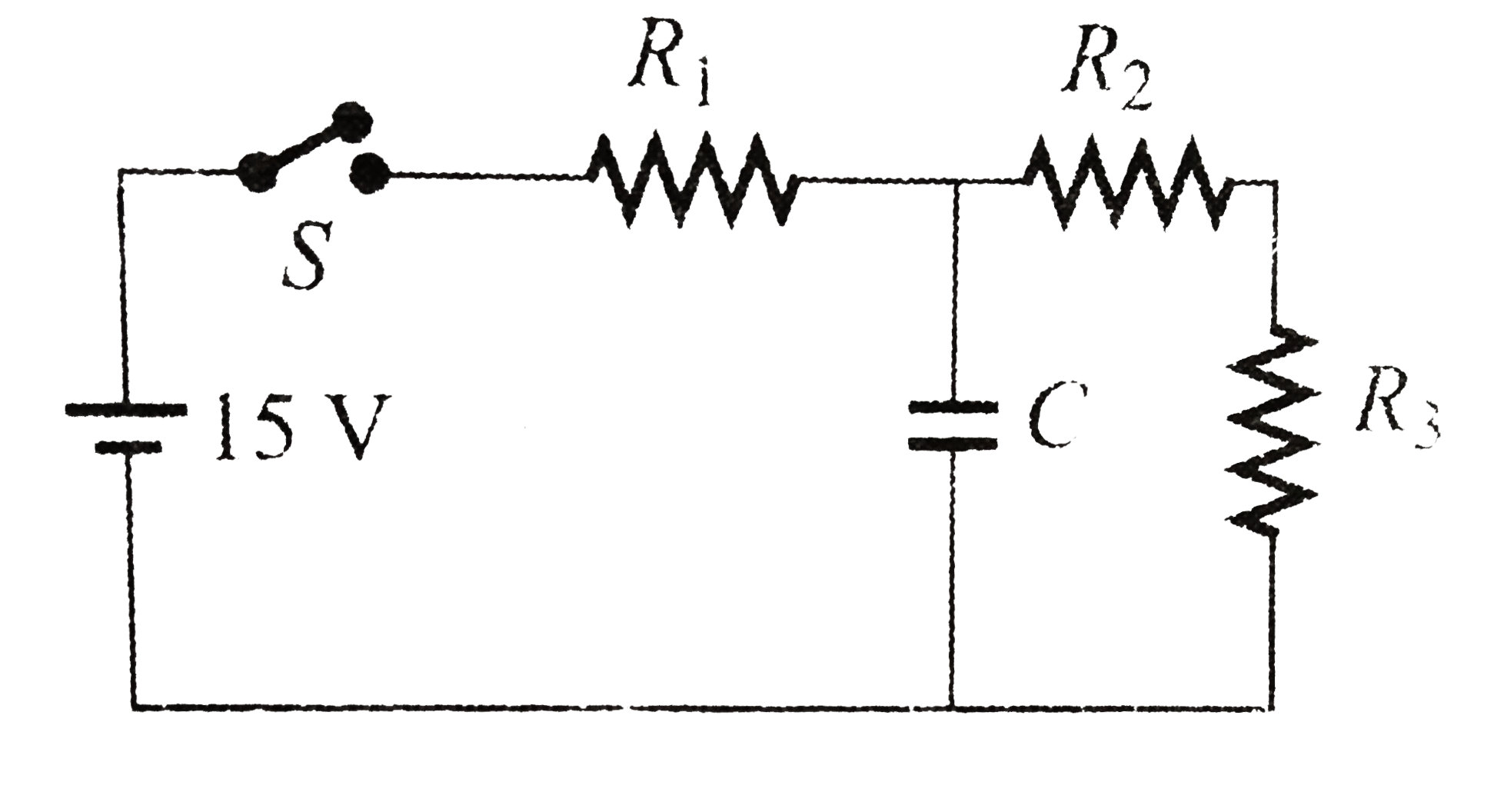 A75μCB50μCC10μCDnone of these
A75μCB50μCC10μCDnone of these
In a simple meter bridge circuit, the gaps are bridged by cord P and Q having the smaller resistance. A balance is obtained when the jockey makes the coil Q with a resistance of 50Ω, the balance po
View SolutionIn a metre bridge, the length of the wire is 100 cm. At what position will the balance point be obtained if the two resistances are in the ratio 2 : 3?
View Solution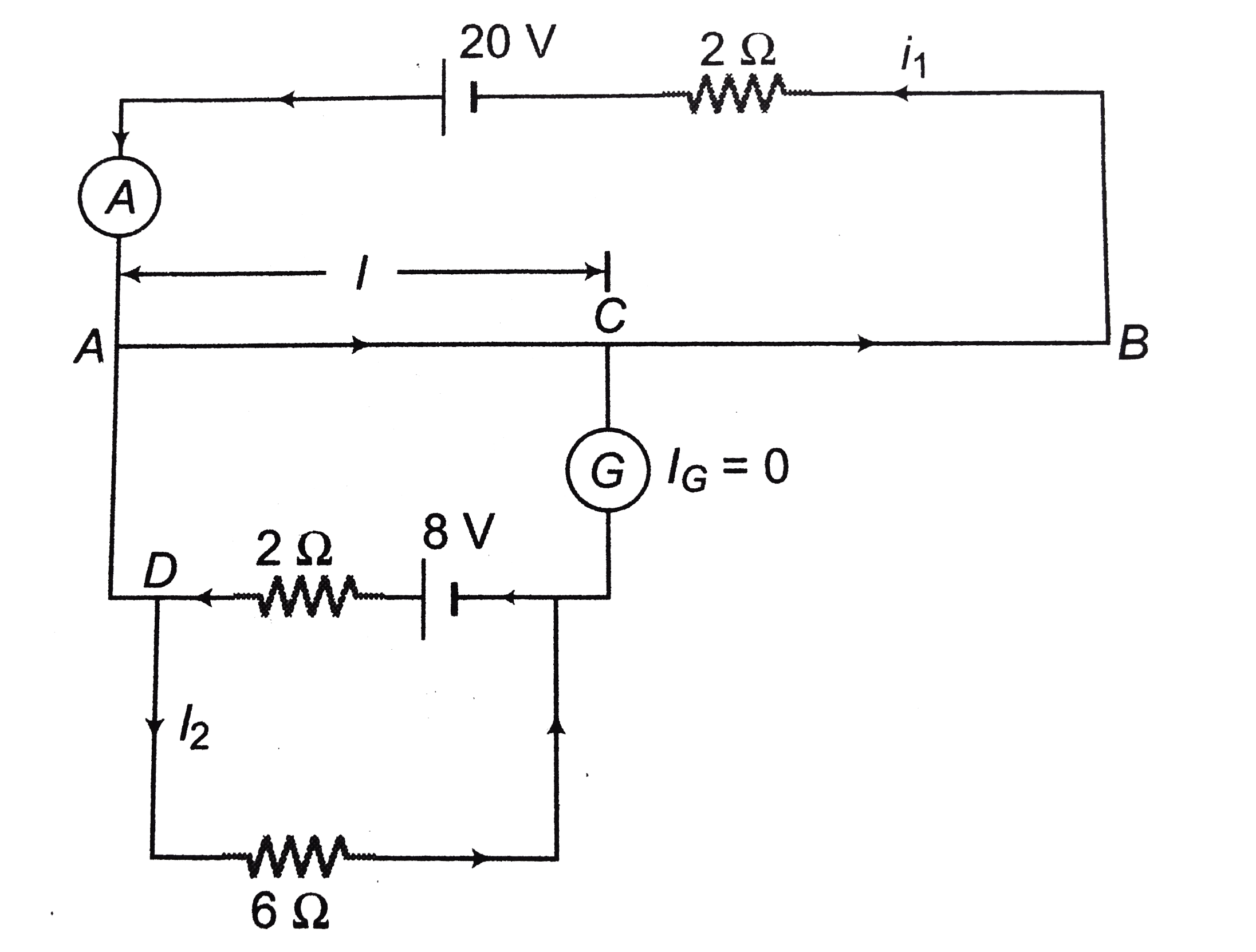
In the figure shown wire AB has a length of 100cm and resistance 8Ω. Find the balance point length l.
View SolutionThe figure shows a source (a battery) with an emf E of 12 V with an internal resistance r of 2Ω and an external resistance of 4Ω is added to complete the circuit. What are the voltmeter and ammeter readings
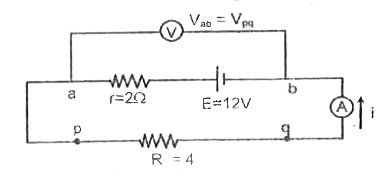
View SolutionThe figure below shows a wheatstone bridge with resistors P and Q having almost equal resistance. When R = 400Ω , the bridge is in balanced condition. If on interchanging P and Q, the bridge is again balanced for R=405Ω, then the value of X is
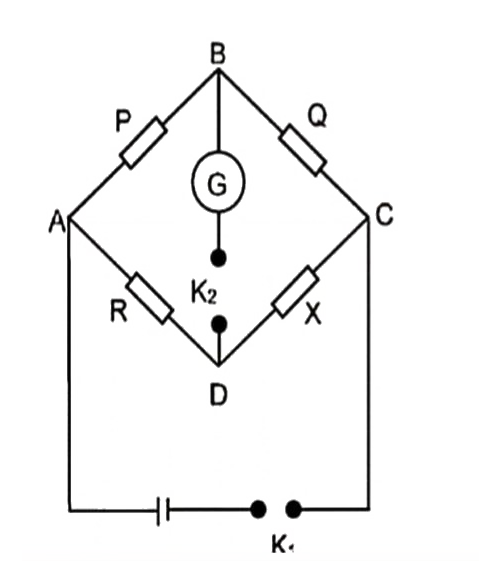
View Solution